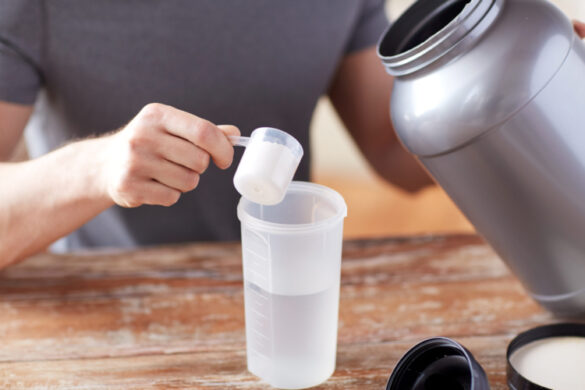As much as we may try to meet our women’s multivitamin and nutrition needs through our diet, it isn’t always possible. This is true even with a perfectly balanced and complete diet.
For instance, chronic diseases can cause our bodies not to absorb nutrients properly. Meanwhile, extreme stress can rapidly consume and deplete the micronutrients and antioxidants in our bodies.
That’s why multivitamins are a huge help.
There’s no standard list of ingredients for women’s multivitamins, though. Working with our doctors and dieticians helps us know what to look for in our supplements.
Let’s go over our ultimate checklist of essential vitamins and minerals for women’s multivitamins.
1. Calcium
Calcium becomes increasingly more necessary as we age. This is because the older we get, the more bone mass and strength we lose. Take note, too, that women have a four times higher risk of developing osteoporosis than men. As such, getting enough calcium becomes even more important.
Although it is known as the bone builder, calcium is necessary not only to strengthen our bones and teeth but also to ensure normal cell function and regulate muscle contraction.
Who needs it most: All women, from adults to young adults and young girls
Recommended dose:
- 1,000 mg of calcium daily for adult women
- 1,200 mg of calcium daily for older postmenopausal women
- 1,300 mg of calcium daily for young girls ages nine to 18 years
2. Folate or Folic Acid
Folate and folic acid are both names for vitamin B9. Folate is the naturally occurring, water-soluble form of vitamin B9 while folic acid is the vitamin’s synthetic form. Folic acid is also known as pteroylmonoglutamic acid.
Folate is necessary for producing blood cells and DNA for other cells and tissues, like skin or hair. Sufficient folate intake can also help limit the risk of some birth defects and help reduce the chance of premature births.
Who needs it most: Pregnant women, though other adult women may also take it, especially if they plan on getting pregnant in the future
Recommended dose:
- 400-800 micrograms of folate or folic acid daily for pregnant women and women planning to get pregnant
- 400 micrograms of folate daily for healthy, non-pregnant adult women
3. B Vitamins
The B vitamins are also known as the energizer vitamins. This group includes vitamin B1 (thiamin), vitamin B2 (riboflavin), vitamin B3 (niacin), vitamin B5 (pantothenic acid), vitamin B12 (cobalamin), and more.
We need B vitamins to help us burn calories more effectively and produce more energy. Each vitamin also has its unique advantages. For instance, vitamins B12 and B6 may help lower our chance of heart disease, while vitamin B12 aids in producing red blood cells.
Who needs it most: Pregnant women, active women, vegetarians, and seniors
Recommended dose:
- 2.4 micrograms or 50% to 100% of the required daily value for full-grown adults
4. Vitamin D
Vitamin D is also known as the sunlight vitamin since our bodies produce it naturally when we’re exposed to sunlight. This vitamin helps reduce cell inflammation and strengthens our immune system against germs.
Vitamin D also helps us absorb calcium better. It also works in tandem with calcium to build stronger bones and prevent osteoporosis, and reduce cell inflammation.
Who needs it most: Post-menopausal women, pregnant women, women who had gastric surgery, women with IBD, and women of all ages who don’t get at least 15 minutes of sunlight
Recommended dose:
- 15 micrograms of vitamin D daily for teens and adult women, including those who are pregnant or breastfeeding
- 20 micrograms of vitamin D daily for post-menopausal women
5. Iron
Iron is an essential mineral for building healthy red blood cells, enhancing brain function, and boosting energy. Iron also helps produce connective tissues and hormones. It is also used to facilitate wound healing and improve immune function.
Because of these benefits, iron is particularly important during rapid growth and development, such as puberty and pregnancy.
Take note that the amount of iron we need varies not only based on our age and health needs but our menstrual cycle and flow strength.
Who needs it most: Women on their menstrual period, pregnant women, and women with anemia or iron deficiency
Recommended dose:
- 27 mg of iron daily for pregnant women
- 9-10 mg of iron daily for breastfeeding women
- 8 mg of iron daily for women ages 51 years and older
- 18 mg of iron daily for young girls ages nine to 18 years
Different Women’s Multivitamins for Different Needs
Your overall health and fitness and stage in life play a huge role in what vitamins and minerals you need to look for in women’s multivitamins. These five are only the core or most essential vitamins and minerals most women need — there are a lot more out there that offer numerous and amazing benefits!
It’s always best to talk with your doctor or nutritionist to find out what supplements you need in your multivitamins.
Sources:
https://www.womenshealth.gov/healthy-eating/how-eat-health/vitamins-and-minerals-women
https://www.everydayhealth.com/womens-health/7-essential-supplements-women/
https://www.medicalnewstoday.com/articles/best-multivitamins-for-women#summary
https://www.medicalnewstoday.com/articles/322960#summary
https://www.medicalnewstoday.com/articles/287228#recommended-intake
https://www.mayoclinic.org/drugs-supplements-vitamin-b12/art-20363663










